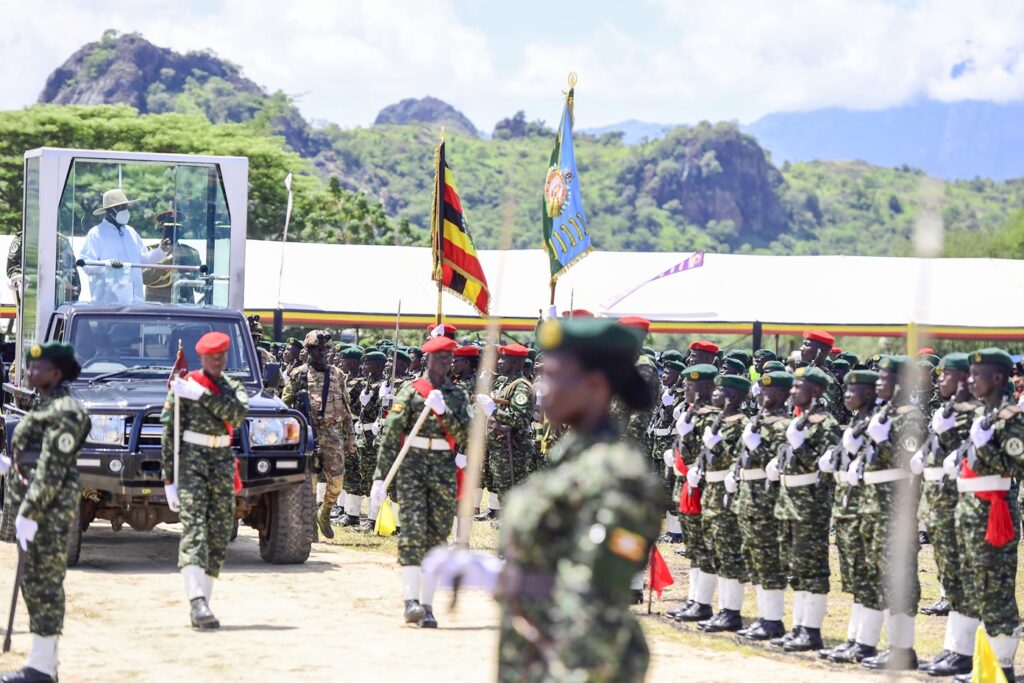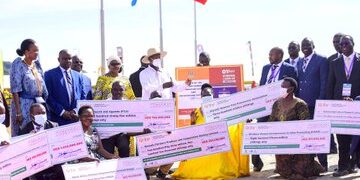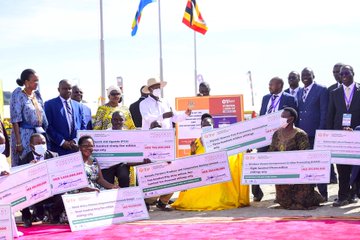President Yoweri Kaguta Museveni has signalled potential sweeping reforms in Uganda’s labour sector, with plans underway to address critical employment issues, including the establishment of a minimum wage, elimination of casual labour, and tighter regulation of employment agencies.
Speaking during this year’s International Labour Day (ILD) celebrations held at Nakaale Grounds in Nakapiripirit District, President Museveni emphasised the government’s commitment to engage deeply on labour-related matters. The event was held under the theme: “Consolidating on the Gains of the Parish Development Model (PDM) for Increased Productivity and Inclusive Job Creation.”
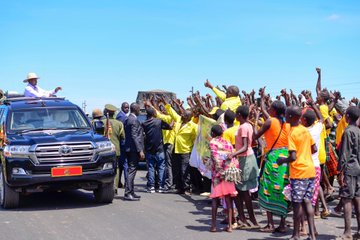
“I had a discussion with workers yesterday at State House, Entebbe. We talked about the minimum wage, the tripartite arrangement, and the issue of casual labour,” he said. “We shall discuss more in June in the Cabinet. We are also going to look into employment agencies that exploit workers by standing between them and employers.”
The President assured workers that the Cabinet would revisit these key issues in June to identify realistic, sector-based solutions. “We must handle things the way they are. The approach we discussed, dealing with issues sector by sector, is more realistic,” he added, underlining that the reform process would be consultative and rational.
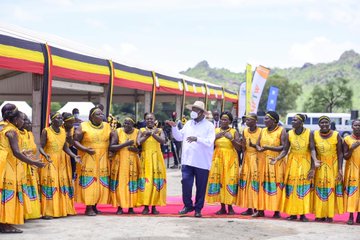
President Museveni also raised concerns over the growing presence of foreign labour in sectors where Ugandans are adequately qualified. “Why should foreign companies bring their workers when Ugandans can do the jobs?” he asked, pledging government scrutiny of institutions that sideline local labour in favour of foreign workers.
Addressing the broader challenge of unemployment, President Museveni reaffirmed the National Resistance Movement (NRM) government’s strategy to create more jobs across sectors. “As we stand today, according to figures from UBOS, there are 1.4 million workers in the factories, in agriculture there are 3.6 million, in services there are 5 million, and in ICT, there are 46,000. Now the jobs in the public service are 480,000. Therefore, the jobs in the private sector are many compared to the public sector. And we are just beginning,” he said.
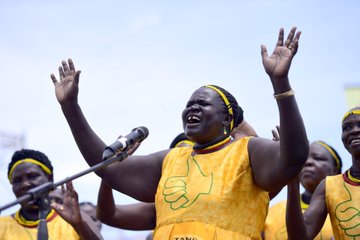
The President stressed that sustainable job creation is rooted in wealth generation. “Wealth comes first. Jobs come from wealth,” he said. “That is why we are investing in low-cost electricity, better transport like railways, affordable credit through UDB and PDM, and cheaper internet—all to support wealth creators.”
He cited success stories from beneficiaries of the Parish Development Model, pointing to individuals who have used the program to build self-sustaining businesses. “In Fort Portal, a man called Nyakana started making animal feeds on 1.2 acres. He now employs 15 people. Another, here in Nakapiripirit, used PDM money to grow green grams, sold them, and bought pigs. Now he has 35 pigs and is self-employed,” President Museveni shared.

He also praised the growing peace and transformation in the Karamoja region, but condemned cattle rustlers as obstacles to progress. “You say you love cows, but you steal them. A real cattle lover like me doesn’t steal, not just for moral reasons, but also because I won’t risk bringing a sick cow into my herd,” he remarked.
In his concluding remarks, President Museveni urged Ugandans to embrace patriotism and Pan-Africanism for broader economic success. “Factories and jobs mean nothing without a market. That’s why you must love Uganda, love Africa. Our internal market isn’t enough. We need East Africa and beyond.”
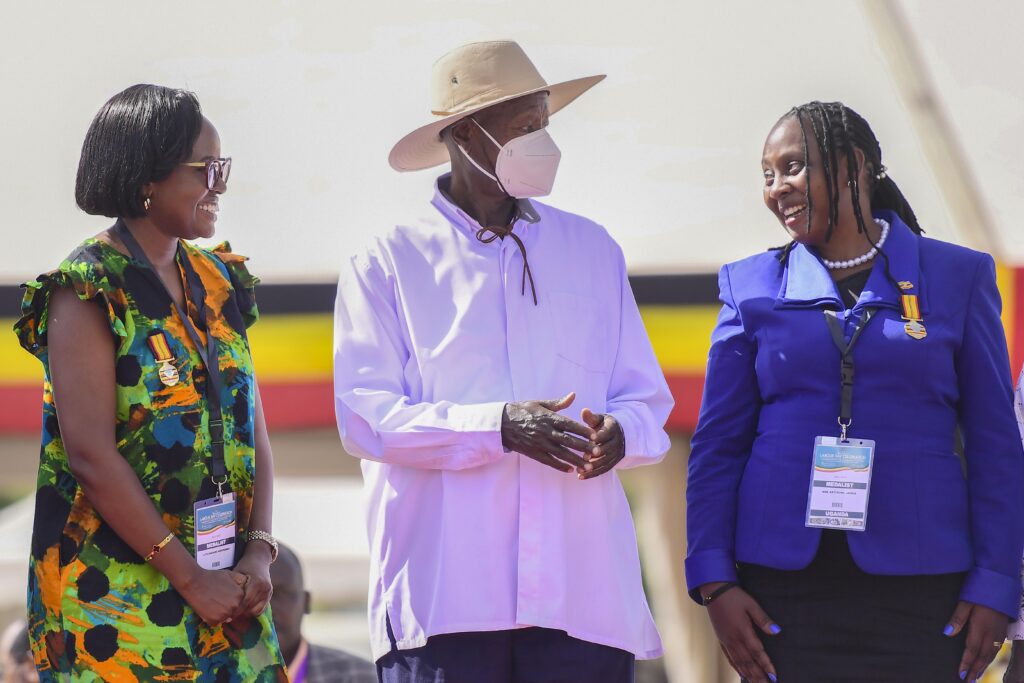
The President concluded by congratulating Ugandan workers and thanking them for their continued contribution to national development.
Minister of Gender, Labour and Social Development, Hon. Betty Amongi, emphasised the critical role of labour in Uganda’s economy. “Therefore, today we are recognising the importance of promoting and protecting the rights of workers,” she said. “We are assessing the challenges we continue to face, opportunities that lie ahead, and recommitting ourselves to ensuring that we enforce employment practices that enhance productive employment.”
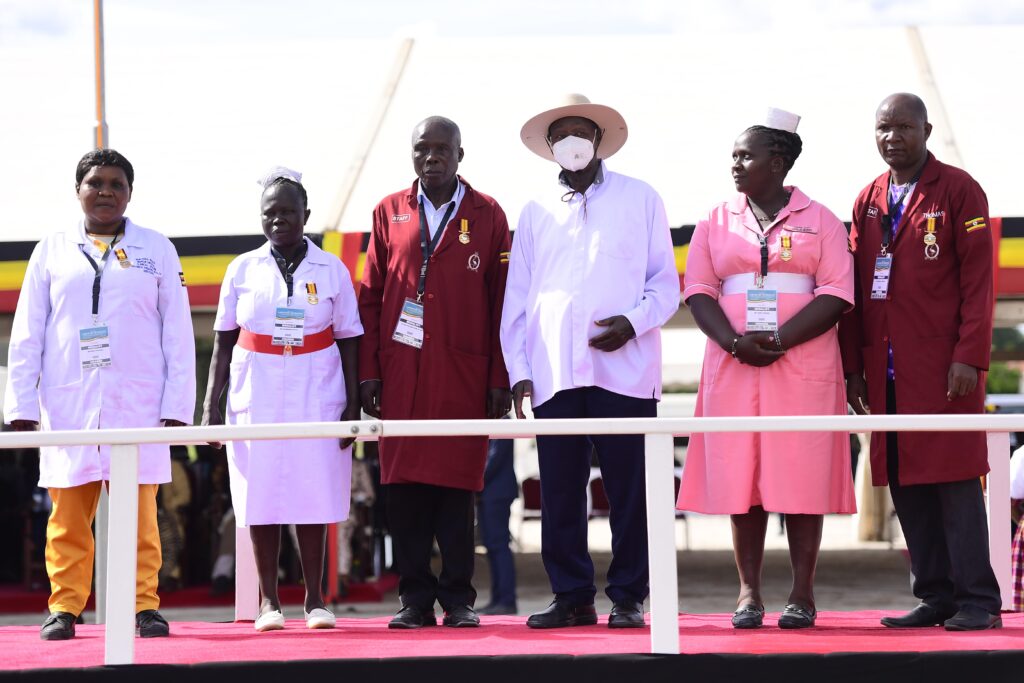
She also highlighted the youth-dominated workforce, citing recent census data: “Uganda’s labour force is predominantly composed of a young population, constituting 73 percent who are under the age of 30.”
Minister of State for Labour, Employment and Industrial Relations, Hon. Anyakun Esther, called for continued presidential support in implementing the Third Decent Work Country Program. “The program is key in improving working conditions and also influencing labour productivity,” she said.

On behalf of the workers, Mr. John Oketcho, Chairman General of the Central Organisation of Free Trade Unions (COFTU), lauded President Museveni for his enduring commitment to workers and national development. “We further appreciate you for your leadership to the people of Uganda and for your immense contribution to the development of our country,” he said.
He also applauded the PDM initiative: “The PDM is a well-thought-out approach for the country.”
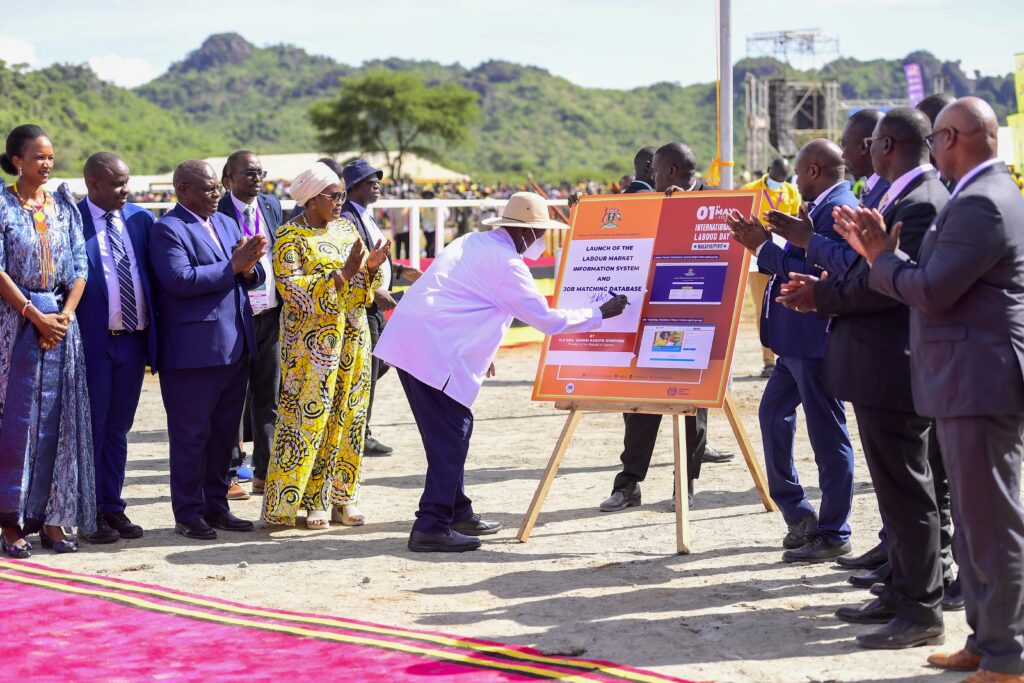
Mr. Fred Bamwesigye, Chairperson of the Uganda Federation of Employers, commended the NRM government for stabilising Uganda’s economy. “Your Excellency, statistics don’t lie. It is factual that Uganda’s inflation has remained relatively stable compared to the rest of the economies. GDP is also expected to grow by more than 7 percent, which is outstanding by global standards.”
The celebrations also featured the launch of the Third Decent Work Country Program 2025/26–2029/30, the commissioning of the Labour Market Information System, and a new Digital Job Matching System. Additionally, 61 individuals were awarded medals in recognition of their outstanding contributions to national development.
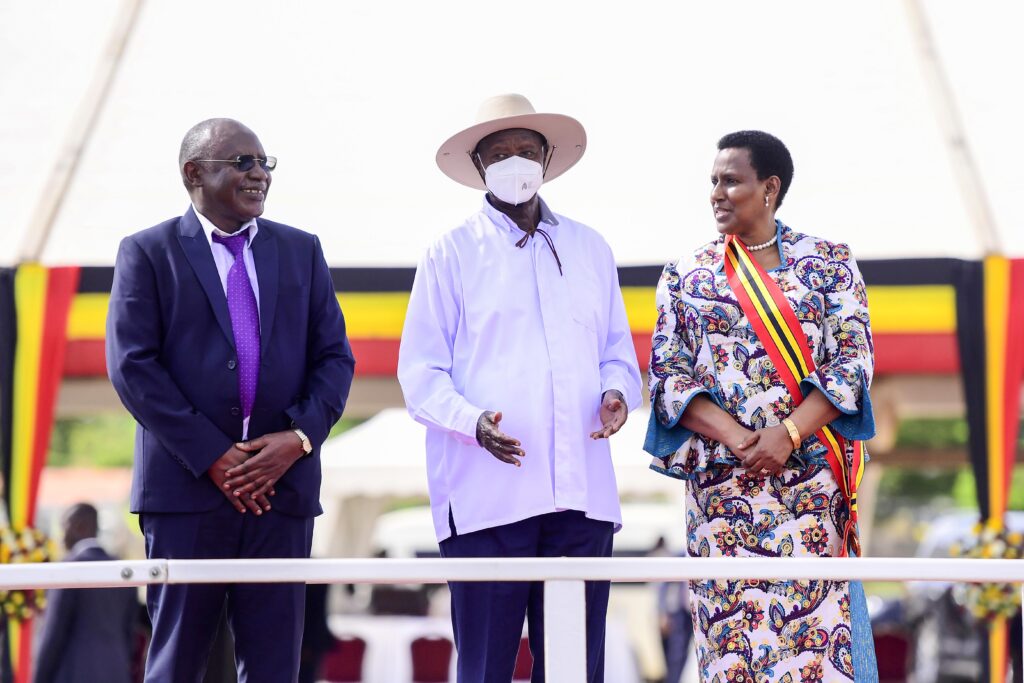
The event was graced by the 3rd Deputy Prime Minister, Rt. Hon. Rukia Nakadama, Cabinet Ministers, Members of Parliament, members of the diplomatic corps, and other dignitaries.
